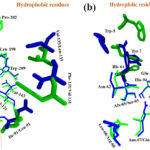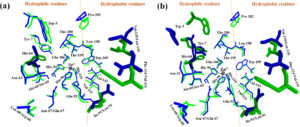
Reviewed by Megan Craig, M.Sc.Aug 16 2023
Men who have higher aerobic fitness at age 18 have a lower risk of several forms of cancer later in life, especially cancers of the gastrointestinal tract. This has been shown by a study at the University of Gothenburg.
It is already known that physical activity can prevent certain types of cancer. The new study has examined the link between aerobic fitness at the time of military conscription and the risk of subsequently being diagnosed with 18 different types of cancer.
The analyses are based on data from 1,078,000 men who underwent military conscription in Sweden between 1968 and 2005, with an average age of 18 years. All outcomes were independent of overweight or obesity, the year in which they conscripted, and their parents’ level of education.
The study, published in the British Journal of Sports Medicine, shows that good fitness at the time of conscription was followed by a lower risk of developing cancer of the head and neck, esophagus, stomach, pancreas, liver, colon, rectum, kidney, and lungs.
Strongest for gastrointestinal cancer
The associations with fitness were strongest for cancers of the gastrointestinal tract, including cancer of the esophagus and liver, with a risk that was approximately 40% lower for those with good levels of fitness at the time of conscription. The corresponding risk for cancers of the stomach and colon was about 20% lower.
Data on smoking only existed in >20,000 of the conscripts, but it is likely that those who were in aerobic fitness were more often non-smokers. This is thought to explain part of the association between poorer fitness and cancer of the esophagus and liver, and most of the association between poorer fitness and lung cancer.
Good fitness at a young age was linked to an increased likelihood of diagnosis for two cancers: skin cancer and prostate cancer. One likely explanation is that fit men also are more prone to screening for prostate cancer and skin lesions, leading to more cases and earlier diagnoses.
The research team at the University of Gothenburg’s Sahlgrenska Academy has also studied aerobic fitness on military conscription in relation to mortality within five years of a cancer diagnosis later in life. Preliminary data presented at the annual meeting of the American Association for Cancer Research showed that cancer mortality rates in all categories were, on average, 30% lower for those who were fit.
Good fitness provides protection
Aron Onerup is a postdoctor at the University of Gothenburg and St. Jude Children’s Research Hospital in Memphis, USA, and is the study’s first-named and corresponding author.
Cancer Research eBook Compilation of the top interviews, articles, and news in the last year.Download the latest edition
“A good level of fitness seems to be able to reduce the risk of many types of cancer, as well as leaving individuals better equipped for successful treatment results if they develop cancer,” he explains. “The results reinforce the arguments for working to establish healthy habits that lead to good fitness levels early in life.”
Maria Åberg, project leader and professor in general medicine at Sahlgrenska Academy thinks that these results can be used as yet another tool in the work with motivating adolescents and young adults to increase their physical activity.
Mats Börjesson is a Professor in Sports Physiology at the University of Gothenburg, a consultant at Sahlgrenska University Hospital, and is the senior author of the study.
“Lifestyle habits are established early, and often remain stable throughout life.” he adds. “The study should not be interpreted as suggesting that it is enough to exercise when young. We believe that it is also of great importance later in life.”
Source:
Journal reference:
Onerup, A., et al. (2023) Associations between cardiorespiratory fitness in youth and the incidence of site-specific cancer in men: a cohort study with register linkage. British Journal of Sports Medicine.
Tags Cloud
eco hub Newsbeat recycle Science










